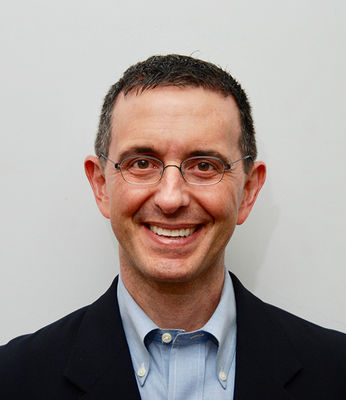It’s been an exciting month. In September, I joined the staff of The John A. Hartford Foundation working to create age-friendly health systems, support family caregivers, and improve serious illness and end-of-life care. Throughout my career, the common thread has been working to better align public policy and systems to provide cost-effective services to those in need. My new position continues this thread in health care and aging, areas in which I have professional and educational experience.
I’ve worked in philanthropy for over ten years, and I consider it a privilege to engage with experts in their chosen fields, learn about new issues, and devise solutions to accomplish social change. In 1997 I started my career in philanthropy at the Mertz Gilmore Foundation, which at the time focused on the environment, human rights, and arts in New York City.
From Mertz Gilmore I moved on to the JEHT Foundation, also based in New York City, which supported international justice, criminal justice reform, and voting rights. I started at JEHT as a program manager for the criminal justice reentry portfolio. Those efforts focused on how public policy and systems could better help people getting out prison, stay out of prison. Access to housing, employment, and health care constituted the bulk of the reentry portfolio. Later, I worked on the foundation’s efforts in criminal justice and mental health, since many people in prison and jail have mental health and/or substance use issues. While at JEHT, I enrolled in Baruch College’s Executive MPA program. Being in school helped me better step back from my day-to-day professional responsibilities and reflect on those experiences.
In 2006, the JEHT Foundation also opened a program on palliative care, a topic that helped bring me to The John A. Hartford Foundation. I was asked to lead JEHT’s exploration of this new area of grantmaking. Through that work I became familiar with many of the organizations and leaders that also have been supported by The John A. Hartford Foundation, including the Center to Advance Palliative Care. At the time I wrestled with how palliative care could be promoted at the public policy level. Given that, it’s been exciting to learn about The John A. Hartford Foundation’s support for the National Academy of State Health Policy, which helps state policymakers develop and implement palliative care in their states.
JEHT’s board and president also asked me to explore related areas of health care, such as family caregivers – the people who don’t walk away when everything else doesn’t go as planned with a loved one’s health care. Through this research, I got to know another group of organizations and leaders supported by The John A. Hartford Foundation, such AARP’s Public Policy Institute and the Center for Health Care Strategies.
The JEHT Foundation ultimately ceased its grantmaking, and I then enrolled in the City University of New York (CUNY) School of Law. From my professional experiences in palliative care, I focused on CUNY School of Law’s Health, Elder Law, and Disability concentration. I was particularly interested in publicly funded health care, mainly Medicare and Medicaid. While in law school, I held internships with a New York State Court judge who at the time worked on guardianship issues and the Health Care Bureau at the New York State Attorney General. I also spent time working for the Medicare Rights Center, where I did legal research on Medigap insurance, fair hearings for recipients of long-term care service and supports, and accommodations that Medicare could provide to beneficiaries with disabilities. I also did a weekly shift on the organization’s National Helpline, counseling people on their Medicare issues.
Coming to The John A. Hartford Foundation pulls together the various strands of my professional experiences, as well as my education and training. As the Baby Boomer generation ages, ensuring that the care of older adults is effective, economically feasible, and focuses on what matters most for individuals will only become more important. I look forward to working with the Foundation’s congenial, engaged, and expert Board and staff to make this a reality.

